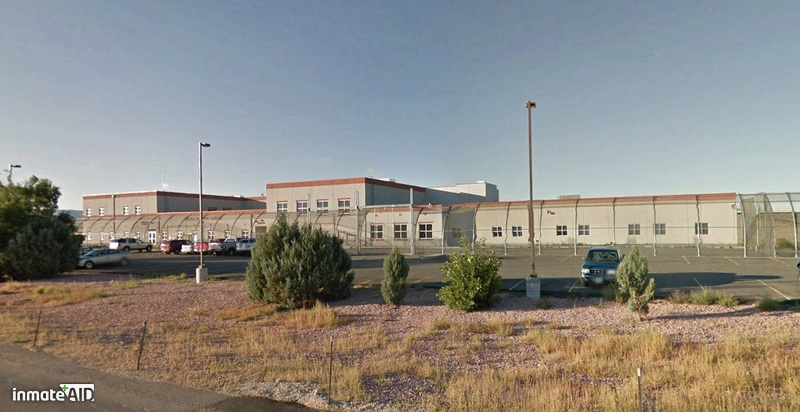Thank you for trying AMP!
You got lucky! We have no ad to show to you!
Connect with an Inmate
Casper Reentry Center (CRC)
Reentry & Treatment Facility
CRC is for Reentry & Treatment Facility offenders have not been sentenced yet and are detained here until their case is heard.
All prisons and jails have Security or Custody levels depending on the inmate’s classification, sentence, and criminal history. Please review the rules and regulations for Reentry facility.
The phone carrier is Global Tel Link (GTL) - ConnectNetwork, to see their rates and best-calling plans for your inmate to call you.
If you are unsure of your inmate's location, you can search and locate your inmate by typing in their last name, first name or first initial, and/or the offender ID number to get their accurate information immediately Registered Offenders
You can support your loved ones at CRC on InmateAid, if you have any immediate questions contact the facility directly at 307-268-4840.
The Casper Reentry Center (CRC) located at 10007 Land Mark Ln Casper, WY, focuses on successful offender reintegration into society, crucial for effective crime control. With high recidivism rates, evidence-based practices tailor programs for medium to high-risk individuals, reducing repeat offenses. Reentry and Treatment Centers offer structured environments and various programs aiding rehabilitation and community reconnection efforts. Collaborating with the Natrona Sheriff's Department, the Wyoming Department of Corrections, and sometimes the US Marshal Service/Federal Bureau of Prisons, comprehensive reentry services prioritize education, substance abuse treatment, and workforce development. Facilities assist officers in monitoring compliance and serve as alternatives to pretrial detention, considering cost-effectiveness and reducing overcrowding. Emphasizing individual needs, family support, and community integration, the center aims for holistic support, empowering successful reintegration.
Capacity: 342 males & females
HISTORY- The Casper Re-Entry Center was initially established in 1985 as the Community Alternatives of Casper.
- In 2005, CEC constructed the 400-bed Casper Reentry Center and developed Casper Hall the facility's Therapeutic Community.
- The Residential Treatment Program was established in 2006.
- CRC received National Commission on Correctional Health Care (NCCHC) accreditation in November of 2007.
- CRC is certified by the Department of Health for substance abuse treatment.
- The facility was selected as the National Correctional Facility of the Year for 2014 by the National Commission on Correctional Health Care (NCCHC)..
SERVICES
- Casper Re-Entry Center Therapeutic Community (TC) program offers the following services to its residents: Individual counseling, group counseling, substance abuse treatment, mental health treatment, educational groups, peer-led seminars, daily small group sessions, daily house meetings, weekly family therapy sessions/couples counseling sessions, weekly family visitation, Meth Matrix, Alumni program.
- Casper Re-Entry Center Residential Therapy Program (RTP) offers the following services to its residents: Individual counseling, group counseling, substance abuse treatment, educational groups, peer-led seminars, daily small group sessions, daily house meetings, weekly family counseling sessions, weekly family visitation, Meth Matrix, REBT, Substance Abuse evaluations, Life Skills and Community Re-entry classes, Parenting and Fatherhood classes, Anger Management groups, Relapse Prevention groups, Grief Counseling groups, NA/AA groups, GED classes, Vocational Rehabilitation Services, volunteer religious groups.
- The following are specialized Native American services offered to the residents in the Residential Treatment Program: White Bison 12-step program, Traditional Sweat Lodge ceremonies, Traditional Cedaring and Purification ceremonies with elders, Talking Circles, Concepts of Wellbriety Movement, 12-step Medicine Wheel, Price of Freedom, All Nations Groups, Red Road to Wellbriety groups.
- Casper Re-Entry Center ACC program provides the following services to its residents: Parenting classes and Women's Issues classes (in-house), employment assistance for federal residents, all other treatment services are available in the local community such as; Sex Offender treatment/counseling, Anger Management groups, Relapse Prevention groups, Thinking for a Change classes, Advanced Thinking for a Change classes, Life Skills classes, D.U.I. educational classes, I.O.P. (Intensive Outpatient Program), Aftercare groups, AA/NA self-help groups, traditional sweat lodge ceremonies, Domestic Violence groups, Untangling Relationships classes, Self-Esteem groups, Young Offender groups, Parenting classes, Women's Issues groups.
- The Casper Re-Entry Center is accredited by the American Correctional Association (ACA) and scored a perfect 100% on all mandatory and non-mandatory standards during its last accreditation.









